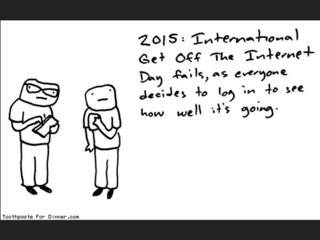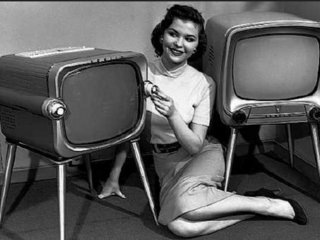House introduces bipartisan bill on AI in banking and housing
The bill would require a report on how these industries use AI to valuate homes and underwrite loans
Read more...
March 12, 2014 marks the 25th birthday of the World Wide Web. The Web is now a jaded millennial working at a crap job and it’s starting to realize that it will never make enough money at this job to pay off its student loan debt.
So 25 years later, the reviews are in: it’s a hit! People like the Web!
The Pew Internet & American Life Project published a study Thursday (one of many they’ll be putting out over the next few months in honor of the Web’s 25th birthday) that found that U.S. adults are now more dependent on the Internet than any other form of technology—even their cell phones.
But before we get into that, did you know that the Web and the Internet are not the same thing? The Internet consists of rules (protocols) that allow computer networks to communicate with one another. The Web, meanwhile, is a service that uses that network to access files and pages that are hosted on other computers.
On March 12, 1989, Sir Tim Berners-Lee wrote a paper proposing an information management system that ended up becoming the framework for the World Wide Web. He released the code for this system for free on Christmas Day 1990.
By 1995, 14% of U.S. adults were using the Internet. Five years later, that number more than tripled to 46% of U.S. adults. I was surprised to learn that by 2005, only 66% of American adults were using the Internet. Only 66%! Amazon had been around for 13 years by then and one in three people didn’t have access to it. And that was just one year after the founding of Facebook, which still managed to go viral.
Today, 87% of American adults are using the Internet, but adoption reaches near saturation levels among those living in higher income households, younger users, and those with college degrees (99%, 97%, and 99% respectively).
And more people today say that giving up the Internet would be very hard or impossible than any other form of technology. A full 53% of Internet users—or 46% of the general population—say that the Internet would be, at minimum, very hard to give up. By comparison, 49% of cell phone owners—or 44% of all adults—say that they would have a very hard time giving up their cell phones.
Interestingly, television and (not so surprisingly) landlines are on their way out, with 35% of adults saying they’d have a tough time giving up their TV, and 17% of all adults saying the same thing about landlines.
Four in ten adults say that they absolutely need to have Internet access.
“The rise of the Web is one of the biggest stories about the growing role of the Internet in global life,” said lead researcher Lee Rainie, in a statement. “Even though there are lots of stories about bad actors and new challenges in online spaces, most report that the overall cyberworld they witness and experience is a pretty nice place.”
The bill would require a report on how these industries use AI to valuate homes and underwrite loans
Read more...The artists wrote an open letter accusing OpenAI of misleading and using them
Read more...The role will not be filled by Elon Musk, though he will be involved in who is chosen
Read more...

